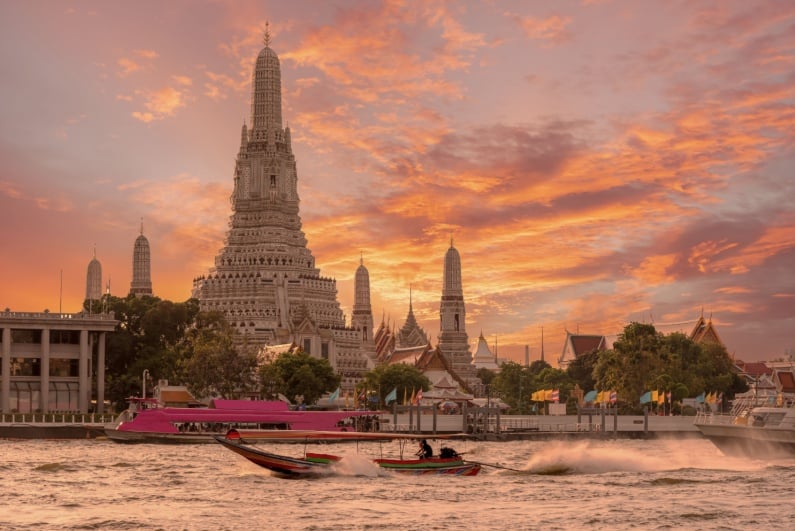Big money
Thailand’s government is currently debating the legalization of integrated resorts (IRs) which analysts predict would prove a big boom for their coffers. Analysts from JP Morgan estimate that IRs in Bangkok, the country’s capital city, could generate revenue of up to $5bn annually if the government issue three licenses.
conservatively suggested a minimum of $2.5bn if only a couple of licenses are permitted
JP Morgan issued its report on Wednesday, focusing on the potential opportunities for these entertainment complexes. They conservatively suggested a minimum of $2.5bn if only a couple of licenses are permitted, with the large number of tourists arriving in the city each year making up the bulk of the demand.
Despite IRs offering an array of other entertainment options, analysts believe gaming floors would account for at least 90% of total revenue, and more than half of the business would come from overseas tourists. Bangkok is one of the most visited cities in Southeast Asia, attracting almost 26 million international visitors last year.
Looking at nearby markets
The report considered other markets in the region as a means of comparison when estimating the potential revenue, including Macau, Singapore, the Philippines, and South Korea.
comparing Bangkok to Singapore as the two regions have similar populations and urban area sizes
It especially focused on comparing Bangkok to Singapore as the two regions have similar populations and urban area sizes. Analysts did argue that some stark differences, including the more diverse range of tourist attractions in Thailand, could mean a lower conversion rate for casinos.
The report also noted how locals in Thailand have a relatively lower level of wealth and income in comparison to Singapore, which would impact revenue from locals. An entrance fee for residents could also stop people from visiting.
After outlining these contrasts, the analysts still believe Singapore is a good model for Bangkok if IRs become a reality.
Ongoing debate
The legalization bill remains under consideration in parliament, with the current draft proposing gaming areas be no more than 5% of the complex’s space. The licenses would be valid for 30 years, and the government suggests having two permits for Bangkok and the others in the Eastern Economic Corridor, Phuket, and Chiang Mai.
Some global casino companies are already expressing interest in a potential Thailand IR, including MGM Resorts International, Wynn Resorts, and Caesars Entertainment.
Opposing views are still present in the debate among lawmakers about the specifics of an IR market. Thailand’s Prime Minister Korrawee Prissanantakul believes the government should operate the casinos to enjoy the full benefits, while Minister of Finance Julapan Amornvivat disagrees, saying they should have experts running these properties.




